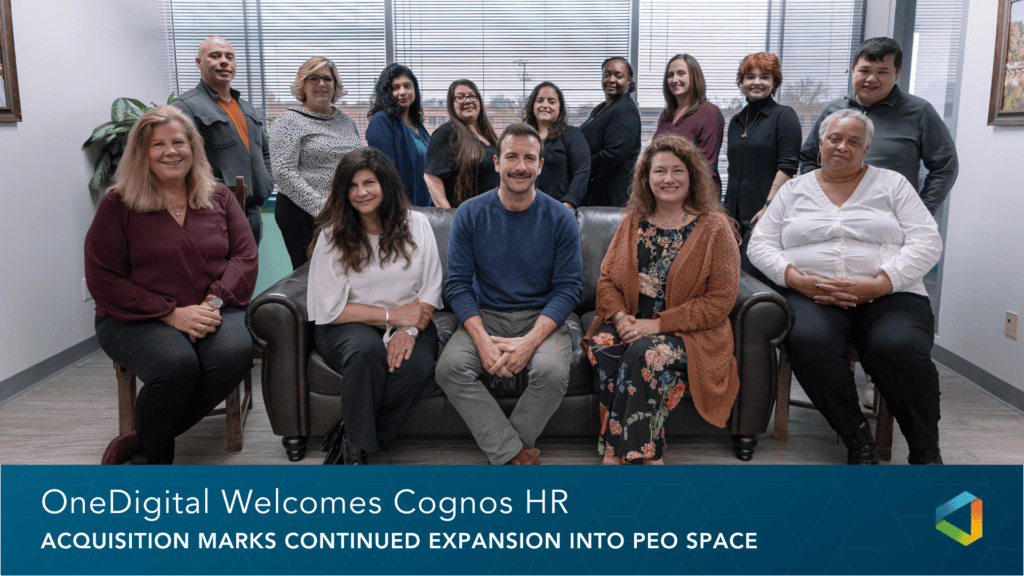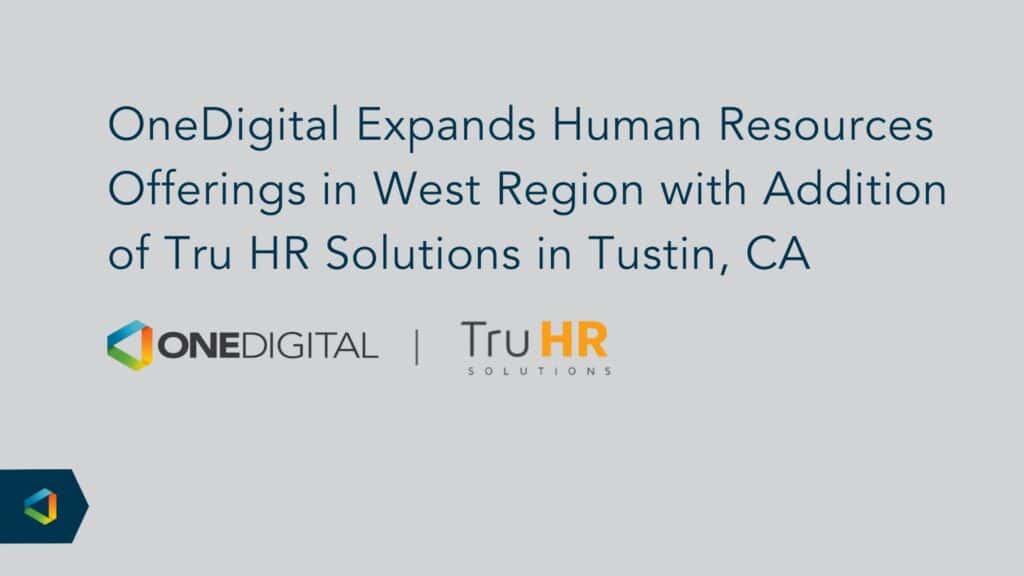OneDigital and Zenefits have teamed up to deliver a new generation benefits consulting approach with an unparalleled technology platform. Click here to view the announcement and learn more about the partnership.
It’s no secret that Human Resources teams have changed over the years.
Thanks to HR software and tools, HR teams are now able to harness technology to collect relevant HR information and streamline tedious services like payroll and benefits administration. And increasingly, HR teams are now able to offer valuable contributions to an organization’s profitability.
Want an in-depth look at what’s changed—and how you can implement these new HR practices into your overall HR strategy? Read on.
1. Data-Driven HR
Gone are the days when human resources practices were developed by academics or top leadership devoid of input from managers and workers. Today, big data and people analytics help make sense of important HR data points.
This means that HR departments everywhere have the power to inform day-to-day decision making within companies, plus create new processes and initiatives using valuable information gleaned from people analytics. This includes information on compensation, diversity, turnover, and more.
And this type of data will only become more critical for businesses. In fact, Deloitte’s 2017 Global Human Capital Trends Report found that 71 percent of companies identify people analytics as a company priority.
By analyzing relevant people data, HR leaders can develop best practices and processes for typical HR activities such as recruiting, hiring, performance management, measuring productivity.
Ready to use people analytics to drive business strategy? Click here to learn how Zenefits can help.
2. Fast, Easy, and Automated HR
Technology has also introduced HR departments to the digitalization of traditional paper-based (and human-driven) HR tools and services.
Today’s modern HR platform help streamline tasks such as hiring, onboarding, and employee records management—activities that typically require many man-hours to complete.
The automation of HR has been identified as a current issue that is top of mind for HR leaders worldwide. A full 74 percent of executives surveyed in the Deloitte 2016 Human Capital Trends report said that digitizing HR is a top priority for their organizations.
3. Ongoing Performance Evaluations
In a recent Harvard Business Review article, executive coach and author, Jeff Gothelf, argues that “HR needs to provide the same services it’s always provided—hiring, professional development, performance management—but in ways that are responsive to the ongoing changes in the culture and work style of the organization.”
And one of those services is performance management.
Foram Sheth, co-founder of career coaching organization, Ama La Vida, says traditional performance management is an outdated practice that has simply become a formality because “HR said so.”
“The idea of it is great—it’s meant to help individuals assess where they are and identify areas of opportunity and growth,” she says. “But doing a performance management review once a year and being evaluated against goals made a year ago when so much has changed isn’t relevant nor helpful.”
Instead, Sheth says the trend in modern HR is to offer frequent feedback set to purpose-driven goals (instead of tactical goals).
This means employees should receive continuous feedback on how well they’re meeting expectations, and more importantly—how to improve. This method aligns with today’s agile business, which must respond to technological and market changes more quickly than ever before.
“This is where day-to-day coaching comes into play as there must be proactive management from leaders,” she says. “Set milestones and evaluate progress frequently.”
4. Strong Focus on Company Culture and Values
Company culture and values has also emerged as a key HR initiative. This—in large part—is in response to the growing wave of millennial workers who value intangible benefits.
In fact, a 2016 Fidelity study found that millennial workers are willing to forego an average $7,600 in salary in exchange for a better work/life balance, a company culture they’re comfortable with, and the opportunity to engage in “purposeful work.”
And data shows that company leadership is listening. The Deloitte Capital Trends Report found that 86 percent of respondents rated “challenges with company culture” as important or very important.
5. Human Resources Departments As Strategic Business Partners
Perhaps one of the most important changes to HR is the repositioning of the human resources field from a traditionally non-profit department (not generating sales for a business) to a strategic business partner.
“The modern HR leader needs to increasingly show how their work ties to the company’s bottom line,” advises Stan Kimer, President of Total Engagement Consultancy, a diversity and career development consultancy firm. “And by tying HR work to the bottom line, it will be more likely for the modern HR leader to be looked at as part of the strategic leadership team, and invited to participate in C-Suite deliberations.”
One way they’re doing this is by analyzing trends in retention, engagement, and productivity—three important factors that tie to business profitability.
“Increasing employee retention can save on recruiting and onboarding costs, productive empowered employees who are engaged can increase sales, and so on,” says Kimer.
The Bottom Line
As modern business practices change, so do HR practices.
HR departments have traditionally supported the human capital of their organizations. In today’s technology-driven world, HR departments have the potential to make actionable and measurable contributions across all aspects of business and this is one of the reasons we are bringing the Zenefits platform to you. Ready to impress your employees, eliminate administrative headaches and get true peace of mind? Click here to experience the platform.




